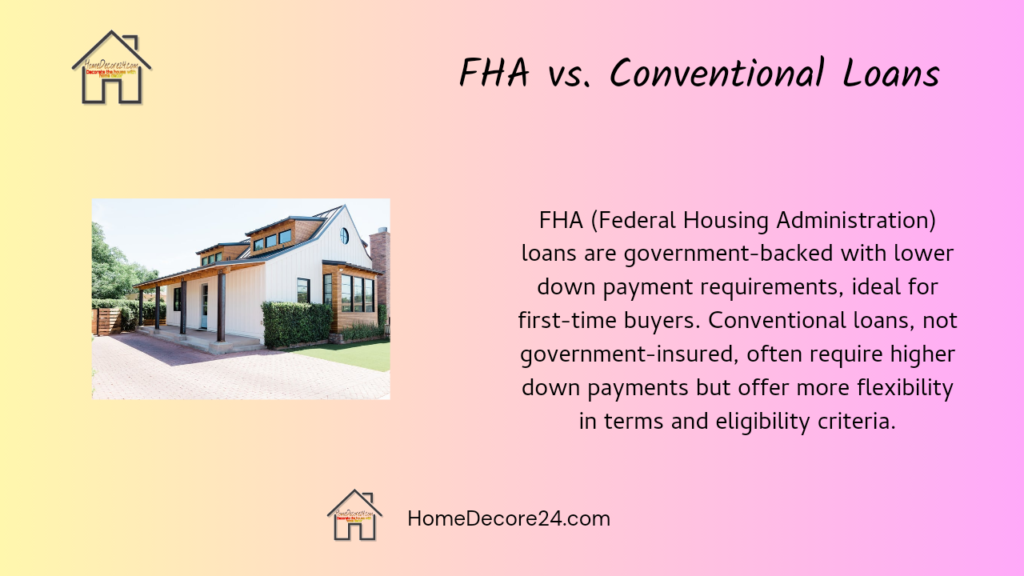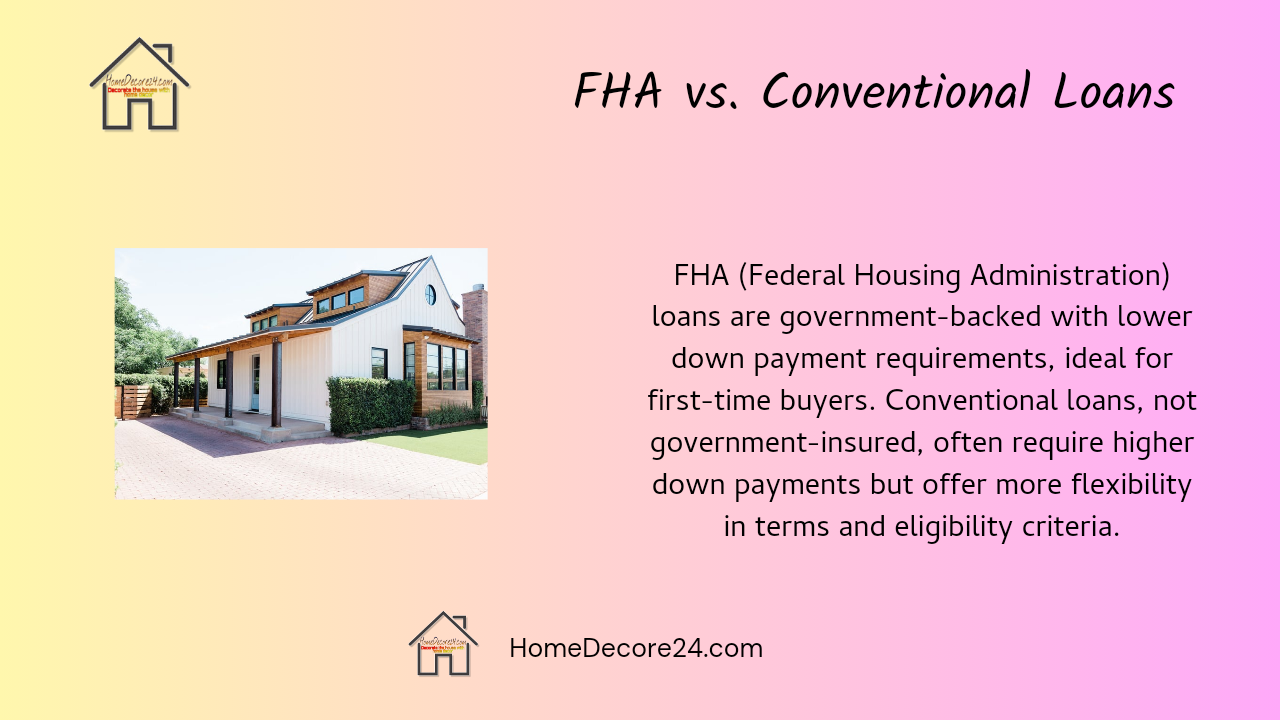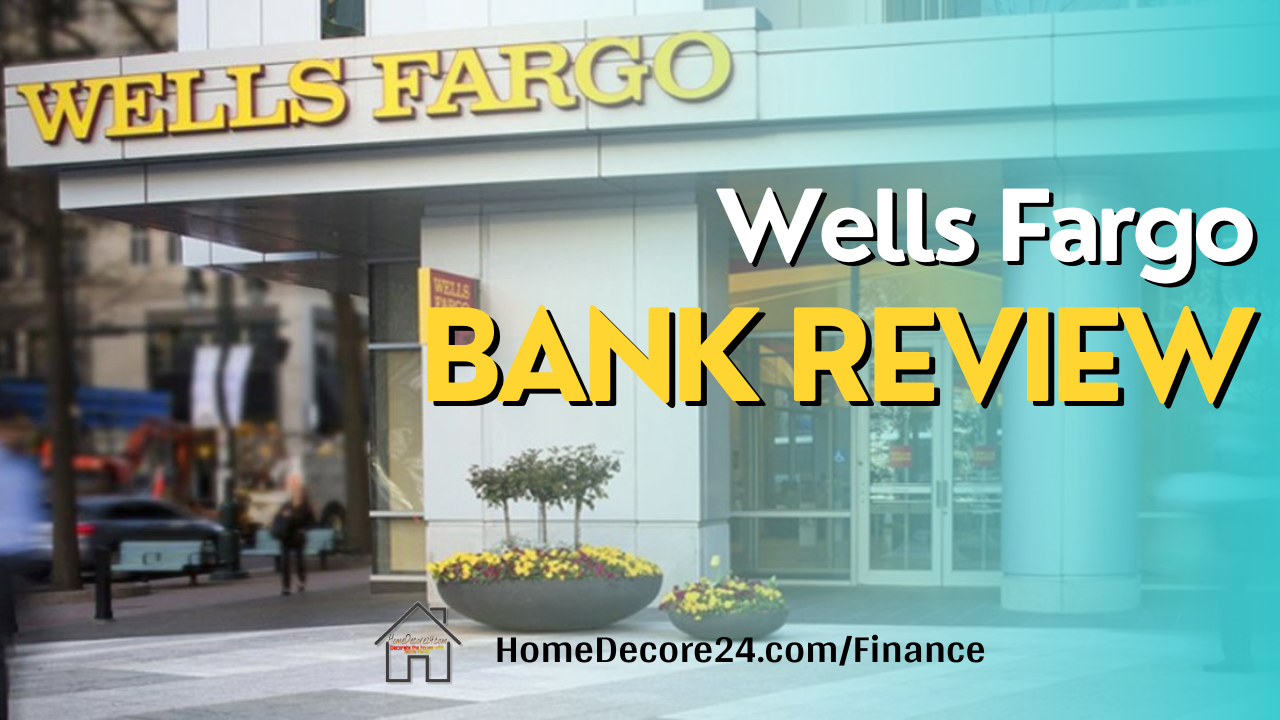
When it comes to financing a home, potential homeowners are presented with a variety of options, each tailored to suit different financial situations and preferences. Two popular choices are FHA (Federal Housing Administration) loans and conventional loans. These options differ in their eligibility criteria, down payment requirements, mortgage insurance, and other aspects. In this article, we will delve into the definitions and key differences between FHA and conventional loans, aiding you in making an informed decision about the best mortgage option for your needs.
Definition of FHA and Conventional Loans
FHA Loan
An FHA loan is a mortgage loan insured by the Federal Housing Administration, a part of the U.S. Department of Housing and Urban Development (HUD). These loans are designed to assist lower-income and first-time homebuyers in achieving homeownership by providing more lenient qualification requirements.
Conventional Loan
Conventional loans, on the other hand, are not insured or guaranteed by any government agency. They conform to the guidelines set by government-sponsored enterprises (GSEs) like Fannie Mae and Freddie Mac. Conventional loans cater to a broader range of borrowers and come in various terms, including fixed-rate and adjustable-rate mortgages.
Read more: FHA Multifamily Loans and Eligibility
Key Differences
Down Payment:
- FHA Loan: One of the main advantages of FHA loans is the lower down payment requirement. Borrowers may qualify for an FHA loan with a down payment as low as 3.5% of the home’s purchase price.
- Conventional Loan: Conventional loans usually require a higher down payment, often around 5% to 20% of the home’s purchase price, depending on the lender and the borrower’s creditworthiness.
Credit Score Requirements:
- FHA Loan: FHA loans are more forgiving in terms of credit scores. Borrowers with lower credit scores (typically around 580) can still qualify for an FHA loan, albeit with a higher down payment.
- Conventional Loan: Conventional loans typically require a higher credit score (usually above 620) to secure favorable interest rates and terms.
Mortgage Insurance:
- FHA Loan: FHA loans mandate both an upfront mortgage insurance premium (MIP) and annual mortgage insurance premiums. These premiums protect the lender in case of borrower default.
- Conventional Loan: Borrowers who make a down payment of less than 20% on a conventional loan usually need to pay private mortgage insurance (PMI) until their equity in the home reaches 20%.
Loan Limits:
- FHA Loan: FHA loan limits are set by the federal government and vary by location. These limits aim to ensure that the program benefits those looking to buy modest homes in their respective areas.
- Conventional Loan: Conventional loans do not have federally set limits, but they do have “conforming” loan limits established by GSEs. Loans exceeding these limits are considered “jumbo” loans and often have stricter requirements.
Property Requirements:
- FHA Loan: FHA loans have specific property requirements, including minimum property standards, which could limit the types of properties a borrower can purchase.
- Conventional Loan: Conventional loans generally have fewer property requirements, making them more suitable for a wider range of property types.
Interest Rate Dynamics
FHA Loan Interest Rates:
FHA loans often exhibit more flexibility in interest rate offerings. These rates are influenced by various factors, including the borrower’s credit score, down payment, and the lender’s assessment of risk. Borrowers with lower credit scores might find FHA loans more accessible due to comparatively lenient interest rate adjustments. It’s important to note that FHA loans require mortgage insurance premiums, which can influence the overall monthly payment.
Read More: Earnest Money and VA Loans
Conventional Loan Interest Rates
Conventional loans adhere to stricter interest rate structures. Borrowers typically need a higher credit score to secure the most favorable rates, and even a small variation in credit score can lead to substantial differences in the interest rate offered. Additionally, conventional loans offer more variety in terms of interest rate options, such as fixed-rate and adjustable-rate mortgages.
The Appraisal Process Distinction
The appraisal process holds significance in determining the value of the property being financed. It plays a pivotal role in loan approval and affects both FHA and conventional loans differently.
FHA Loan Appraisal Process:
FHA loans require an appraisal that not only assesses the property’s value but also ensures its compliance with FHA’s minimum property standards (MPS). These standards encompass safety, security, and livability aspects of the property. While this protects the buyer from purchasing a subpar property, it might lead to more stringent appraisal requirements. Properties that do not meet MPS might need repairs before loan approval, potentially affecting the transaction timeline.
Conventional Loan Appraisal Process:
Conventional loan appraisals primarily focus on determining the property’s market value. Unlike FHA loans, conventional loans do not have mandatory property standards beyond what’s generally expected for safe habitation. This flexibility can be advantageous, allowing for a smoother transaction process. However, it also places the onus on the buyer to conduct thorough property assessments to ensure they are making a sound investment.
Is a conventional loan better than a FHA loan?
The suitability of a conventional or FHA loan depends on factors like credit score, down payment, and property type. Each option has its advantages; choose based on your circumstances.
Which loan is best for a lower down payment?
An FHA loan usually requires a lower down payment, often as low as 3.5% of the home’s purchase price, making it a good option for those with limited upfront funds.
Are conventional loans harder to qualify for?
Conventional loans might have stricter credit score and income requirements, potentially making them challenging for borrowers with lower credit scores or limited income stability.
YouTube Video
Bottom Line
Choosing between an FHA loan and a conventional loan depends on your financial situation, credit score, down payment capability, and personal preferences. FHA loans offer more lenient requirements for lower-income and first-time homebuyers, while conventional loans are better suited for borrowers with stronger credit profiles and larger down payments.
Carefully evaluating the key differences between these two mortgage options will help you make an informed decision that aligns with your homeownership goals. It’s recommended to consult with mortgage professionals to determine the best path forward based on your individual circumstances.







